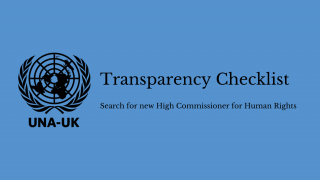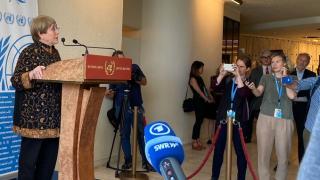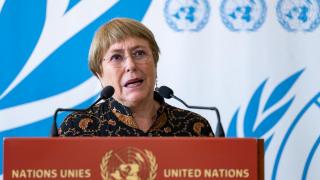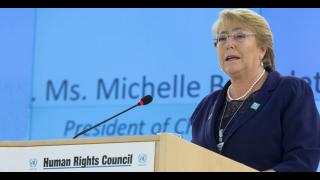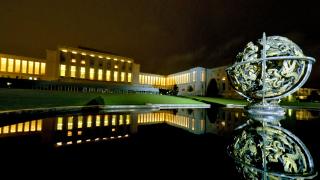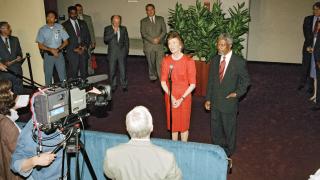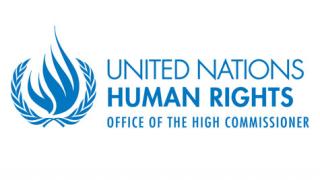
This page is part of our campaign to find the best High Commissioner for Human Rights. Back to the campaign hub.
In a letter to UNA-UK and others, the Secretary-General's office has laid out the process for recruiting the next High Commissioner for Human Rights, who will take up the post on 1 September 2018.
As well as seeking nominations from member states, the letter states that there will be a specific request to "non-governmental organizations, national human rights institutions and regional organizations for the nomination of women candidates and to the public to encourage women candidates to apply to the vacancy". It also states that external experts will be present on the interview panel.
The letter was received in response to a joint call for a meritocratic process with greater inclusion of civil society from over 60 non-government organisations, coordinated by UNA-UK and Universal Rights Group amid growing concerns over a lack of transparency.
A call for nominations was also sent by the Secretary-General's office to all member states yesterday, with a deadline of 11 July for candidates to apply.
While UNA-UK remains concerned about the short timeframe to complete the process, we are pleased to note the developments regarding civil society nominations, external experts and the commitment to gender diversity.
Through the 1 for 7 Billion campaign, co-founded by UNA-UK in 2014, we have consistently called for meritocratic, inclusive and transparent senior level appointments at the UN.
We hope these developments can be built on with further improvements to the process as outlined in our letter, including by improving the global visibility of the formal call for candidatures; publishing a clear timetable for the selection process that enables adequate assessment of candidates; publishing an official list of candidates; requiring all candidates to produce vision statements and seeking the involvement of all stakeholders.
Why does this matter?
The High Commissioner for Human Rights is one of the most important jobs in the world. As the principal human rights official of the United Nations, the post holder is tasked with preventing the continuation of human rights violations at a time when fundamental human rights are in retreat throughout much of the world, including in some of the world's most powerful countries.
The vastness of the responsibilities of the Office of the High Commissioner for Human Rights is at odds with its extremely constrained budget. It receives just 3.7% of the UN’s core budget – roughly $200m – and has secured only $5.7m in voluntary funding in 2018. Much of the office’s impact, therefore, comes from the HCHR’s role as a strong advocate and effective diplomat for the protection of human rights and human rights defenders.
Process matters. A thorough, inclusive process will produce a stronger field of candidates and increase the chance of finding the best person for the job. Transparency during the process is vital; the future postholder’s credibility and mandate will be strengthened if it is clear that they have come through a thorough a competitive and meritocratic recruitment process.

